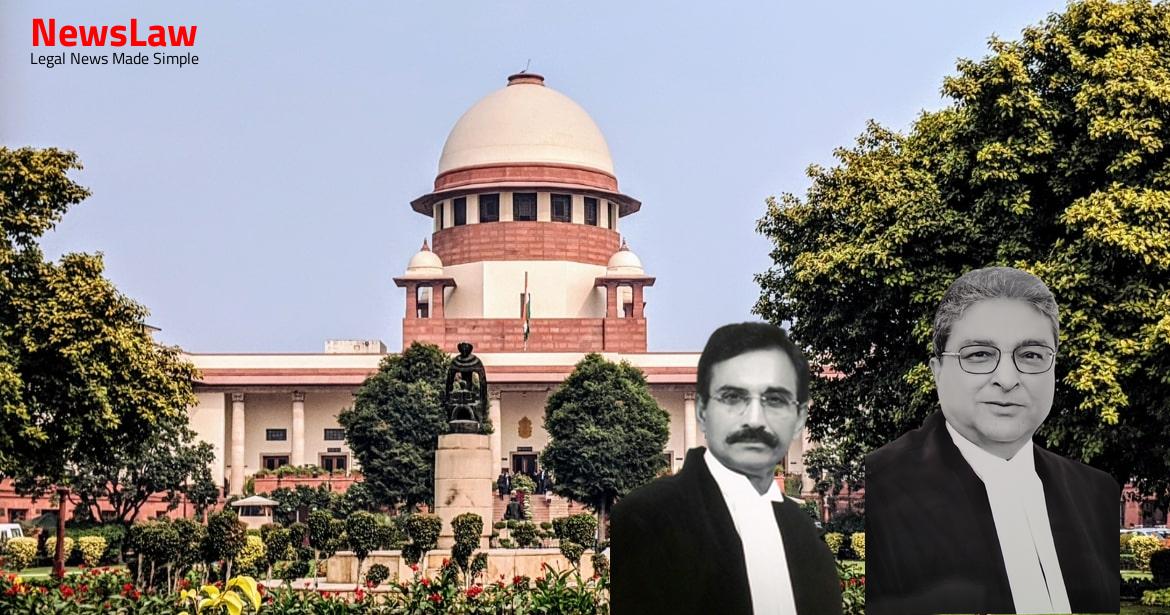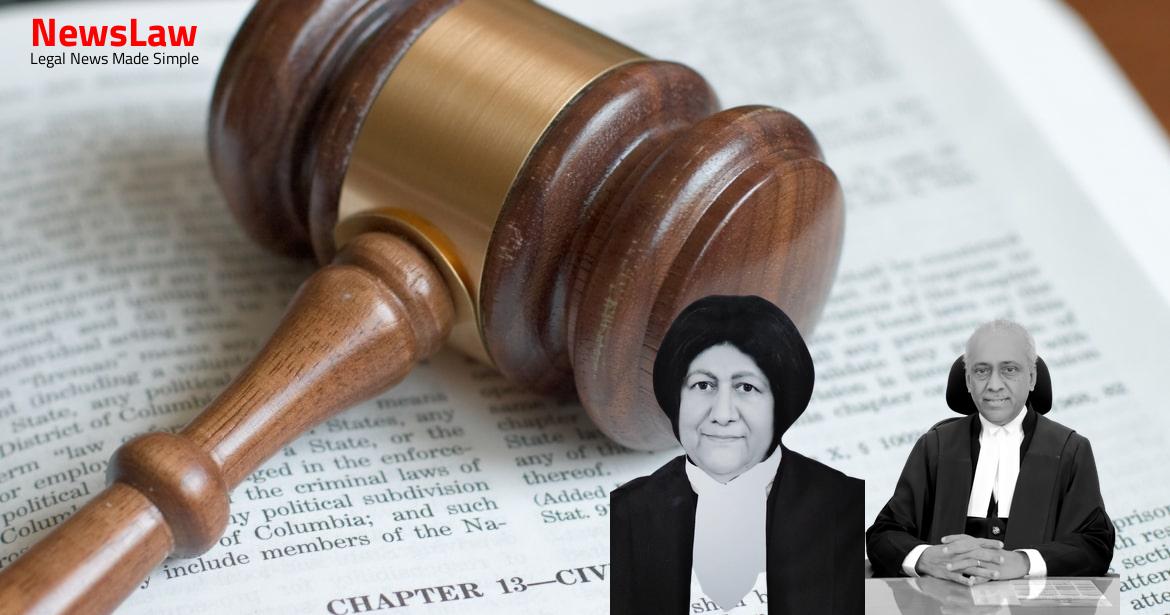In a recent legal case concerning deductions under Section 80-IA of the Income Tax Act, the court delved into the intricate legal analysis surrounding the interpretation of the provision. The focus was on whether the deductions should be limited to ‘business income’ only or extend to the broader concept of ‘gross total income’. This summary highlights the key arguments and discussions put forth by the court regarding the application of tax laws in such scenarios.
Facts
- Assessing Officer restricted the eligible deduction under Section 80-IA to ‘business income’ only.
- Assessee revised claim under Section 80-IA due to error in calculation of income-tax depreciation.
- Assessee argued that deduction under Section 80-IA is allowable only against ‘income from business’.
- Appellate Authority partly allowed the Appeal and reversed the Assessing Officer’s decision on deduction under Section 80-IA.
- Tribunal upheld the decision of the Appellate Authority on the issue of deduction under Section 80-IA.
- Revenue’s Appeal pertains to the assessment year 2002-03 with the Assessee declaring total income as ‘NIL’.
- Section 80AB of the Act relates to the quantification of deduction based on net income and does not restrict deductions to the income from a specific source.
- The Assessing Officer interpreted ‘that nature’ and ‘shall alone’ in Section 80AB to limit deductions to the income from the specific source.
- The Appellate Authority disagreed with the Assessing Officer’s interpretation and held that deductions under Section 80M are allowed on the net income after deducting expenses.
- Section 80AB places a ceiling on deductions related to incomes in Part-C of Chapter VI-A, to be computed on net eligible income included in the gross total income.
- The Appeal filed by the Assessee was partly allowed by the Appellate Authority by reversing the Assessing Officer’s finding on Section 80-IA deductions.
- The background and purpose of Section 80AB, inserted from 01.04.1981, were explained referring to Circular No 281 dated 22.09.1980 of the CBDT.
- The Appellate Authority’s decision was influenced by a previous ITAT decision in Royal Cushion Vinyl Products Ltd. case.
- The Assessing Officer’s restriction of Section 80-IA deduction only to business income was annulled by the Appellate Authority, affirmed by the Tribunal and High Court.
- The Supreme Court in Cloth Traders (P) Ltd. case held that deductions under Section 80M are allowable on the gross amount of dividends received under the ‘business’ head.
Also Read: Legal Analysis on Seniority Fixation in Contempt Petitions
Arguments
- Assessee’s claim accepted by the Appellate Authority that there is no restriction on considering income from any other source while allowing deduction under Section 80-IA.
- Referring to judgments, Assessee argues that sub-section (5) of Section 80-IA does not limit deduction under sub-section (1) to ‘business income’ only.
- Opposing view of the Revenue is that deduction under Section 80-IA should be constrained to ‘business income’ only as per Section 80-IA(5).
- Revenue contends that Section 80AB contemplates deductions against income specified in the relevant section.
- Assessee maintains that Section 80AB deals with computation of deduction based on net income.
- Court referred to judgments supporting Revenue’s interpretation that deduction under Section 80-IA is for profits and gains derived solely from the eligible business.
- Revenue argues that Section 80-IA(5) focuses on computing the deduction prior to allowing it, and it should be allowed only against ‘business income’.
- The learned Senior Counsel for the Assessee relied upon the judgment of the Bombay High Court in Commissioner of Income-tax v. Tridoss Laboratories Ltd.
- The Appeal should not be allowed according to the arguments presented by the Senior Counsel.
- The controversy in this case revolves around the deduction under Section 80-IA being allowed to the extent of ‘business income’ only, rather than ‘gross total income’ as claimed by the Assessee.
- The Assessing Officer rejected the Assessee’s claim that deduction under Section 80-IA should be allowed to the extent of ‘gross total income’.
Also Read: Judicial Analysis on Selection Process
Analysis
- Section 80AB of the Act deals with determination of deductions under Part C of Chapter VI-A based on net income.
- Section 80-IA allows deduction of profits and gains derived from eligible business for ten consecutive assessment years.
- Section 80-IA computes total income by considering allowable deduction of profits and gains from eligible business.
- Section 80AB ensures deductions are made with reference to income included in the gross total income.
- Introduction of Section 80AB was to enable deductions under Part C of Chapter VI-A on net income of eligible business.
- Section 80AB pertains to determination of deductible income in gross total income and does not restrict the width of Section 80-IA.
- Section 80A(1) allows deductions specified in Section 80C to Section 80U from the gross total income in computation of total income.
- The Appellate Authority and the Tribunal did not discuss Section 80-IA(5) in the case before them.
- The interpretation of sub-section (1) of Section 80-IA was a key focus in the appeal.
- It was clarified that sub-section (5) of Section 80-IA pertains to determining the deduction under sub-section (1) by considering the ‘eligible business’ as the sole source of income.
- The scope of sub-section (5) of Section 80-IA is limited to the calculation of the deduction under sub-section (1), not its allowance against the total income.
- The decision in Synco Industries (supra) was discussed in relation to similar provisions in Section 80-I, emphasizing that losses from other divisions cannot reduce the profits eligible for deduction.
- Section 80-I(6) contemplates that only profits from the industrial undertaking shall be taken into account as the source of income.
- Section 80-I(6) deals with the actual computation of deduction while Section 80-I(1) deals with the treatment of deductions for arriving at the total income of the assessee.
- The judgment in Canara Workshops (P) Ltd. was relied upon to emphasize the purpose of sub-section (5) of Section 80-IA.
- The Revenue argued to reduce the profits from the automobile ancillaries industry by the loss in the manufacture of alloy steels, but the Court disagreed with this submission.
- Section 80-IA (1) deduction is not limited to business income only.
- The phrase ‘derived … from’ in Section 80-IA (1) does not restrict the deduction to the narrowest possible construction.
- The intention of the legislature in providing deduction under Section 80-IA (1) is not to be narrowly construed.
- The above points address the arguments made by the Senior Counsel for the Revenue.
Also Read: Legal Analysis of Decision-making Authority in Municipality Dispute
Decision
- Civil Appeal No. 1509 of 2021 de-tagged due to unrelated issues.
- Dismissed Appeal regarding the extent of deduction under Section 80-IA of the Act.
- Civil Appeal No. 1327 of 2021 disposed of in accordance with the judgment.
- Civil Appeal No. 1329 of 2021 disposed of in accordance with the judgment.
- Civil Appeal No. 2537 of 2016 disposed of in accordance with the judgment.
- Civil Appeal No. 1408 of 2021 disposed of in accordance with the judgment.
- Civil Appeal No. 1508 of 2021 disposed of in accordance with the judgment.
Case Title: COMMISSIONER OF INCOME TAX-I Vs. M/S RELIANCE ENERGY LTD (FORMERLY BSES LTD.) THROUGH ITS M.D. (2021 INSC 277)
Case Number: C.A. No.-001327-001327 / 2021



